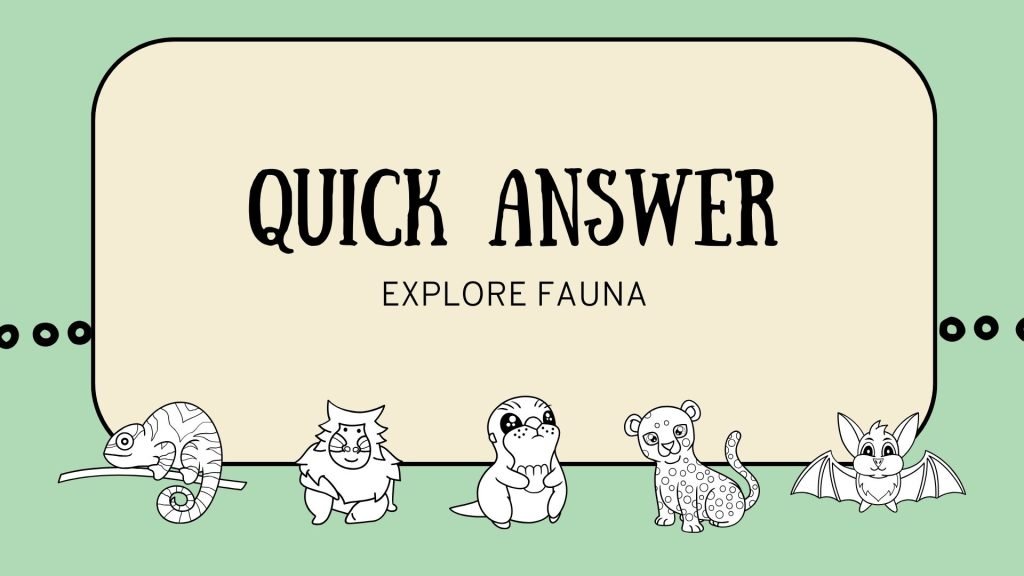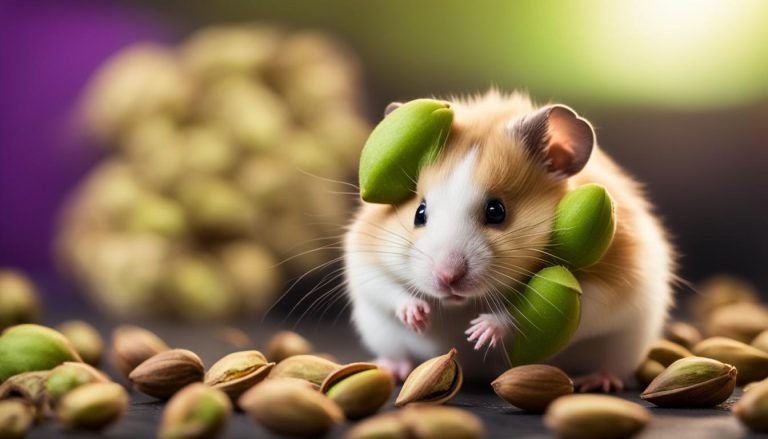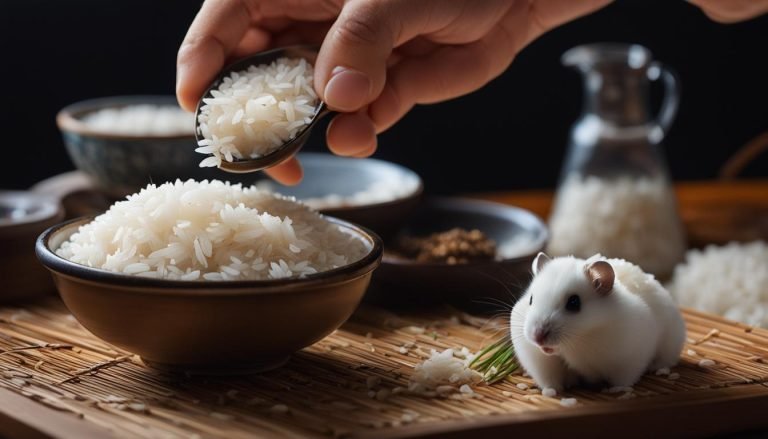Can Hamsters Eat Kiwi? Nutritional Facts Guide
As a proud hamster owner myself, I understand the importance of providing a well-rounded and nutritious diet for our furry friends. So let’s dive into the world of hamster dietary needs and explore the wonderful world of kiwi!
Hamsters are omnivorous creatures, meaning they can eat both plants and insects. While their primary diet consists of pellet food, it’s essential to offer them a variety of fresh fruits and vegetables to ensure they receive all the necessary nutrients.
And yes, your little hamster can enjoy some kiwi in their diet! But before you rush to share your juicy kiwi slice, let’s take a closer look at the nutritional benefits and potential risks of feeding kiwi to hamsters.

Can Hamsters Eat Kiwi?
Yes, hamsters can eat Kiwi but it has to be in moderation because too much kiwi can cause digestive issues.
Key Takeaways:
- Hamsters can eat kiwi, but it should be given in moderation.
- Kiwi is safe for hamsters, but portion control is important.
- Kiwi is a nutrient-rich fruit and offers several health benefits to hamsters.
- Feeding too much kiwi can lead to health issues, such as bladder stones and weight gain.
- Offer hamster-sized portions of fully ripened and peeled kiwi as a treat once or twice a week.
Is Kiwi Safe for Hamsters?
Kiwi is a safe fruit for hamsters to eat, but it’s important to exercise in moderation. Hamsters have a diverse palate and can enjoy a range of foods, including fruits. Kiwi is included in the list of hamster-safe fruits, but it’s crucial to control the portions. Providing hamsters with hamster-sized portions of kiwi ensures they don’t overeat and helps prevent potential health risks.
Hamsters are small creatures, and giving them large amounts of kiwi can lead to digestive issues. It’s important to remember that kiwi should be just a part of their diet and not the main component. Offering a balanced and diverse diet is essential for the overall health and well-being of hamsters.
Nutritional Facts of Kiwi
Kiwi is a nutrient-rich fruit that offers several key nutritional benefits. It is high in water content, providing hydration for hamsters. Additionally, kiwi contains carbohydrates, fiber, protein, and a variety of minerals such as calcium, iron, magnesium, phosphorus, potassium, and sodium. This combination of nutrients contributes to the overall dietary balance for hamsters.
One of the notable nutritional highlights of kiwi is its vitamin C content. While vitamin C is not essential for hamsters, it can be beneficial for hamsters that are stressed, ill, or unwell. Vitamin C serves as an antioxidant, supporting the immune system and aiding in overall well-being.
To showcase the nutritional value of kiwi further, here is a breakdown of its key nutrients:
- Water: Kiwi has a high water content, aiding in hydration.
- Carbohydrates: Kiwi contains carbohydrates for energy.
- Fiber: The fruit provides fiber, promoting healthy digestion.
- Protein: Kiwi contains protein, contributing to overall nutrition.
- Minerals: Kiwi is a source of various minerals like calcium, iron, magnesium, phosphorus, potassium, and sodium, which support overall dietary balance.
- Vitamin C: Kiwi is rich in vitamin C, offering antioxidant properties that can benefit stressed, ill, or unwell hamsters.
Health Benefits of Kiwi for Hamsters
Kiwi provides several health benefits to hamsters. The high moisture content of kiwi helps keep hamsters hydrated, promoting their overall well-being. Hydration is essential for hamsters as it supports various bodily functions, including digestion, circulation, and temperature regulation.
In addition to hydration, kiwi also contains micronutrients in the form of minerals. These minerals contribute to the overall dietary balance of hamsters, ensuring they receive essential nutrients for optimal health. Some of the minerals found in kiwi include calcium, which supports bone health, and potassium, which aids in muscle function.
Although hamsters do not require vitamin C in their diet, kiwi is a rich source of this vitamin. While vitamin C may not be essential for hamsters’ growth, immunity, or reproductive performance, it can still offer benefits in certain situations. Hamsters that are stressed, ill, or unwell may benefit from supplemental vitamin C, as it can help boost their immune system and aid in their recovery.
So, while the health benefits of kiwi for hamsters are primarily focused on hydration and mineral intake, the presence of vitamin C offers potential additional advantages in specific circumstances.
Kiwi’s moisture content helps keep hamsters hydrated
- Hydration supports digestion, circulation, and temperature regulation
Kiwi contains essential minerals for hamster health
- Calcium promotes bone health
- Potassium aids in muscle function
Supplemental vitamin C may benefit stressed or unwell hamsters
- Vitamin C can help boost the immune system and aid in recovery
Risks of Too Much Kiwi for Hamsters
Feeding too much kiwi to hamsters can pose certain risks and negative side effects. While kiwi is a nutritious fruit, it’s crucial to understand that moderation is key when introducing it to your pet’s diet. Here are some potential risks associated with overfeeding kiwi to hamsters:
- Kidney Stone Formation: Kiwi is naturally high in oxalates, which can bind to calcium and lead to the formation of bladder stones in hamsters. These stones can cause discomfort, affect urinary function, and even require veterinary intervention.
- Diarrhea: The high water content of kiwi can act as a natural laxative and lead to diarrhea in hamsters if consumed in excessive amounts. Diarrhea can cause dehydration and pose a serious threat to your pet’s health if left untreated.
- Weight Gain: Kiwi contains a relatively high amount of sugar, which can contribute to weight gain in hamsters if consumed excessively. Obesity can lead to various health problems, such as heart disease, joint issues, and a reduced lifespan.
- Dental Problems: The sugar content in kiwi can also increase the risk of dental issues in hamsters, including cavities and tooth decay. It’s important to remember that hamsters have delicate teeth, and excessive sugar consumption can negatively impact their oral health.
To ensure your hamster’s well-being, it’s essential to serve appropriate portions of kiwi and closely monitor their health after introducing this fruit into their diet. Always consult with a veterinarian familiar with hamster care if you have any concerns or notice any unusual symptoms in your pet.
How Much Kiwi Can Hamsters Eat?
The amount of kiwi that hamsters can eat depends on their size. A general rule of thumb is to give hamsters a chunk of kiwi that is the size of their paw. This may seem like a small amount, but it is equivalent to a substantial portion for hamsters.
It’s important to serve fully ripened and peeled kiwi to hamsters. Kiwi can be offered as a snack once or twice a week, and if hamsters develop a liking for it, it can become a favorite treat.
Be Careful of a Few Things

While kiwi is safe for hamsters to eat, there are some things to be cautious about. When feeding kiwi to hamsters, it’s important to avoid artificially flavored kiwi products such as candies and pies. These products often contain added sugars and artificial flavors that can be harmful to hamsters. Stick to feeding your hamster fresh kiwi fruit instead.
Additionally, hamsters should never consume any food with added sugar, artificial flavors, colors, or preservatives. Their bodies are unable to break down these substances, which can lead to digestive issues and other health problems. Stick to natural and unprocessed foods when giving treats to your hamster.
It’s also crucial to thoroughly check hoarding spots for kiwi remnants and remove any rotting food from the hamster’s cage. Kiwi that has gone bad can be a breeding ground for bacteria and fungi, which can make your hamster sick. Keep their living environment clean and free of spoiled food.
Another thing to be mindful of is the impact that high-moisture foods like kiwi can have on hamster cheek pouches. These pouches can become impacted if your hamster stores too much kiwi or other wet foods in them. This can lead to discomfort and even require medical attention. Keep an eye on your hamster’s eating habits and ensure they are not overstuffing their cheeks.
When it comes to feeding kiwi to hamsters, it’s essential to be cautious and mindful of these factors. By making informed choices and following these guidelines, you can ensure that your furry friend stays healthy and happy.
Final Thoughts
In conclusion, hamsters can safely enjoy kiwi as part of their diet, but it is important to do so in moderation. Kiwi offers several nutritional benefits, including hydration and micronutrients. However, it is crucial to be mindful of portion sizes and potential risks associated with kiwi consumption.
One of the main risks is the presence of oxalates in kiwi, which can bind to calcium and potentially lead to bladder stones in hamsters. Additionally, the high water content of kiwi can cause diarrhea if consumed excessively. Moreover, the high sugar content of kiwi can contribute to weight gain and dental issues in hamsters.
To ensure the safety of your hamster, serve appropriate portions of fully ripened and peeled kiwi. A good rule of thumb is to give hamsters a piece of kiwi that is the size of their paw. Kiwi can be offered as a treat once or twice a week, and if your hamster develops a liking for it, it can become a favorite snack.
Always monitor your hamster’s health closely and seek professional care if any issues arise. By following these guidelines, you can incorporate kiwi into your hamster’s balanced diet, providing them with a variety of flavors and nutrients while keeping their well-being a top priority.
Similar Posts
- Can Hamsters Eat Brussels Sprouts: Safe or Not?
- Can Hamsters Eat Rice? Safe Pet Feeding Tips
- Can Hamsters Eat Potatoes? Safe Snacks Explained
- Can Hamsters Eat Pistachios? Safe Snacks Guide
- Can Hamsters Eat Mushrooms? Safety Guide
- Can Hamsters Eat Mealworms? Safe Snack Guide
- Can Hamsters Eat Crackers? Safe Snack Tips.
- Can Hamsters Eat Asparagus? Safe Feeding Guide
- Can Hamsters Eat Peaches? Safe Snacking Tips
- Can Hamsters Eat Cilantro? Safe Herb Guide
- Can Hamsters Eat Cantaloupe? Find Out
- Can Hamsters Eat Avocado? Diet Safety Tips
- Can Hamsters Eat Pineapple? Safe Snack Guide
- Can Hamsters Eat Green Beans? A Complete Guide
- Can Hamsters Eat Blackberries? Safe Treat Tips







